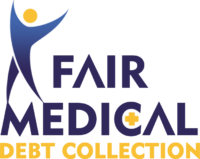
Healing Financial Wounds: A Guide for Medical Offices to Recover Unpaid Bills
In the bustling realm of healthcare, medical practitioners work tirelessly to heal physical ailments. However, a different kind of pain often lingers in the background: unpaid bills. These outstanding payments can strain a medical office’s resources and impede its ability to offer the best care. But fret not; there are efficient strategies to manage and recover medical debt.
1. Clear Communication from the Start:
Before services are rendered, ensure your patients understand the costs involved. Provide detailed estimates, discuss insurance coverage, and clarify any potential out-of-pocket expenses. A well-informed patient is less likely to contest bills later.
2. Offer Multiple Payment Options:
From credit cards to bank transfers, or even online portals, a diverse range of payment options can cater to various patient preferences, making it easier for them to settle their dues.

Providing diverse payment options can significantly increase the likelihood of timely bill settlements by catering to varied patient preferences and financial situations. Here are three examples of how medical offices can offer multiple payment options:
- Digital Wallets & Online Payments: Embracing the digital age, medical offices can set up online portals where patients can log in, view their bills, and make payments using digital wallets like Apple Pay, Google Wallet, or PayPal. These platforms offer a quick, secure, and user-friendly way to settle accounts without the need for physical cards or cash.
- Installment Plans: Recognizing that some medical bills can be hefty, offering the option of breaking down the total into manageable monthly or bi-weekly installments can alleviate the financial strain on patients. By setting up automated deductions from bank accounts or credit cards, medical offices can ensure consistent cash flow while providing patients the flexibility they need.
- In-Office Payment Kiosks: Similar to the self-checkout systems in retail stores, medical offices can introduce kiosks where patients can pay their bills using credit/debit cards, cash, or even checks. These kiosks can integrate with the office’s billing software, instantly updating account balances and reducing manual entry errors.
3. Implement Automated Reminders:
In many cases, non-payment is a simple oversight. Automated SMS, email, or even traditional mail reminders can nudge patients to address outstanding bills promptly.
4. Consider Payment Plans:
For larger bills, offering a structured payment plan can make it more feasible for patients to pay over time, rather than facing a daunting lump sum.
5. Early Intervention:
The longer a bill remains unpaid, the harder it can be to collect. Engage with patients early on if there’s a delay in payment. A simple phone call can sometimes clarify misunderstandings or address concerns.
6. Hire a Collection Agency:
If all else fails, it might be time to bring in the professionals. Collection agencies specialize in recovering unpaid debts. For medical offices, partnering with an agency that has expertise in medical debt can be beneficial. They understand the sensitivities involved, the regulatory landscape, and have refined strategies to recover unpaid bills without harming the patient-provider relationship.

Selecting the right debt collection company is crucial for a medical office, ensuring both the recovery of unpaid bills and the preservation of the office’s reputation. Here are three key aspects medical offices should consider:
- Industry Specialization & Experience: Given the unique nature of medical debt, it’s pivotal to engage a collection agency that specializes in healthcare collections. Such agencies would be well-acquainted with healthcare-specific regulations, insurance intricacies, and the sensitive nature of patient interactions. Their experience in the medical realm ensures they possess the finesse and knowledge required to navigate the often-complex scenarios of medical billing and collections.
- Ethical Practices & Patient Relations: The manner in which a collection agency interacts with patients can significantly impact a medical office’s reputation. It’s crucial to find an agency that employs compassionate, respectful, and ethical collection practices. Patient reviews, testimonials, or case studies can shed light on an agency’s approach and its alignment with the values of the medical office.
- Regulatory Compliance & Transparency: Medical debt collection is governed by various laws and regulations, like the Fair Debt Collection Practices Act (FDCPA) and the Health Insurance Portability and Accountability Act (HIPAA). It’s imperative that the collection agency not only adheres to these regulations but also provides transparent reporting and communication to the medical office. This ensures that the collection process is legal, ethical, and that the medical office is kept informed about the progress and methods used.
7. Regularly Review Billing Processes:
It’s essential to periodically assess and refine your billing procedures. Mistakes or inefficiencies can lead to disputes and delayed payments. Ensure your billing team is well-trained and equipped with the right tools.
While unpaid bills can be a challenge for medical offices, a strategic and compassionate approach can lead to effective recovery. By maintaining transparent communication, offering flexible payment solutions, and seeking expert help when necessary, medical offices can focus on what they do best: healing and caring for their patients.


